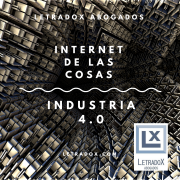Lawyers for Sustainability Spain. Companies. LETRADOX
Lawyers for Sustainability Spain. Companies. LETRADOX
Jorge Juan St. 141. Madrid (Spain)
Tlfs. 912980061 / + 34 645958948
info@letradox.es
Enployees, Environmetal, Social and Governance.
A sustanibility reporting is the one where a company or an organization discloses its social, environmental and governance performance. Sustainability reporting can be synonymous or named with other terms united by the idea of reporting non-financial performance metrics, Environmental, social and governance (hereinafter referred to as ESG -or, more accurately, EESG, including Employees as well as Environmental, Social and Governance- ) reporting, and corporate social responsibility (hereinafter referred to as the CSR) reporting, or form part of an integrated reporting that consolidates both analysis: financial and non-financial performance.
Since we only have one planet, all companies of all sizes and sectors all around the world are encouraged to make the report to be conscious of their own impact and activity and let investors and other stakeholders make their decisions knowing the situation of each company.
The companies are encouraged to make such reports, but not all of them are mandated to do so. Mandatory sustainability reporting has been applied only to state-owned companies, large corporations, or so-called listed companies-.
Some examples:
In European Union (hereinafter referred to as the EU), The 2014/95UE Directive on Disclosure of non-financial and Diversity Information is considered a substantial reporting instrument of the EU.
Certain large companies and public-interest companies are mandated to disclose material environmental, social and employee-related matters, such as anti-bribery, corruption and human right performance.
While it is true that the scope of application of the national laws is gradually broader, that means, each time more companies are required to disclose such report.
In India, there are seven instruments with a mandatary status that can be used to disclose EESG reporting. The Securities and Exchange Board of India requires the top 100 listed companies to produce annual Business Responsibility Reports.
The United States Securities and Exchange Commission (hereinafter referred to as the SEC) expose all listed companies SHOULD disclose their environmental compliance expenses. New York Stock Exchange (hereinafter referred to as NYSE) order the listed companies to adopt and disclose a code of business conduct and ethics.
It shows that sustainability reporting is promoted, mandated and regulated on a global scale but in different ways. The focus of this document is on United States and its ESG reports framework.
Note: CSR is not really the hot topic anymore, it is important for companies, but as far as the law is concerned, we focus mostly on the EESG and CSR is basically part of that.
Investors have demand more details related to firms’ performance with respect to environmental and social metrics and argued that these disclosures are essential to their asset allocation decisions.
Companie’s Disclosures to investors have become one of the keys in the debate over EESG.
Financial disclosures need to keep pace with the changing nature of corporate governance.
The idea that financially material disclosures can be clearly distinguished from politically motivated disclosure requirements is less tenable when companies find themselves finally affected by perceptions of their social and environmental responsibility.
Drawing distinctions between financial and non-financial is becoming pointless and untenable since social issues can become financial problems in short time.
Although many of the largest companies had already begun to make voluntary EESG disclosures following Sustainability Accounting Standards Board (hereinafter referred to as SASB) and Global Reporting Initiative (hereinafter referred to as GRI), which provide guidelines for firms to voluntary draft and make structure on EESG issues in standardized ways, the next step is the truly integration of the EESG into the culture and values of the company, hence it will in a natural way be incorporated in the work of the firm that is done throughout governance and operations, strategic planning, risk management, compensation, communications and disclosure, since EESG does not happen “elsewhere”, but “everywhere”.
To a better comprehension of the the situation in USA, it consideres necessary make the follow annotation. On the one hand, Spain has a law “Ley 11/2018, de 28 de diciembre, por la que se modifica el Código de Comercio, el texto refundido de la Ley de Sociedades de Capital aprobado por el Real Decreto Legislativo 1/2010, de 2 de julio, y la Ley 22/2015, de 20 de julio, de auditorías de Cuentas, en materia de información no financiera y diversidad” address non-financial information and its diversity.
Such law regulates the scope of application, the format, and the minimum content of the report, such as the framework of the different standards the report should follows, and the legal consequences for those who do not comply with the requirements, ergo, the law.
On the other hand, USA does not have a law which regulates this issue, but SEC is being in charge to act on EESG Disclosure.
There remains substantial debate over the precise contents and details of what EESG disclosures should encompass.
EESG is very wide in order that not only it does touch every company somehow, but also quite specific in that the ESG issues company face can vary highly based on their industry, geographic location and so on. It Concludes there is no metrics that in a proper way covers all EESG issues for all firms.
Furthermore, It should be noted that the scenario is steadily changing so issues that back then or even yesterday were in a second level, today are taking more precedence.
Experts in the subject think that SEC policy need to be adaptative and innovation.
An effective EESG disclosure system does not imply a rigid structure but does imply an agreement among investors and companies about useful, reliable and comparable disclosures under standards flexible to can be remained.
The SEC should address challenging questions to get a good and effective disclosure:
-What disclosures are most useful?
-What is the right balance between principles and metrics?
-How much standardization can be achieved across industries?
-How and when should standards evolve?
-What is the best way to verify or provide assurance about disclosures?
-When and how should disclosures be globally comparable?
-Where and how can disclosures be aligned with information companies already use to make decisions?
Besides those questions, it is important that SEC act with their historic approach by paying attention on what information is material to an investment decision.
The concept of materiality:
it describes an item of information as material if there is a substantial likelihood that a reasonable investor would consider the information important deciding how to vote or make an investment decision. “Reasonable investor” is someone whose interest is in a financial return on an investment.
In that way, SEC should asses the merits on any potencial disclosure requirements against the question of whether reasonable investor would consider them material, that is, to a company’s financial value.
Does SEC have a legislative mandate to make rules for the USA financial markets?
No, SEC does not have legislative mandate to make rules for the US financial market. If their Congress wishes to follow suit, it can. In fact, in June 2021, The house of representatives voted on a measure addressing EESG issues. SEC considers what to require in its own ESG rules, it should not just copy the requirements of the international standards, it should look at the issue through their three-part mission.
Why do the firms disclose such reports?
The notion that a corporation must consider the interests of allof its stakeholders to create value for shareholders is not new. Maximizing profit by responding to the social preferences of employees and costumers is still maximizing profit, which is, what corporations have always done.
Many investors prioritize social objectives to attend those social objectives, while others do it because they believe the maximize returns. In this contexts, it is so difficult to regulate information disclosure by discern when the information is wanted for profit maximation versus some overlapping or alternative purpose.
In a world in which play an important role: sensitiveness of customers and employees, and the social implications of corporate behavior.
The prior one can result in dramatic effects on brad value, employee retention, and ultimately profit, investor must worry about a highly expanded universe of risks. That is why the information firms provide investors should change accordingly.
Lawyers for Sustainability Spain. Companies. LETRADOX
Jorge Juan St. 141. Madrid (Spain)
Tlfs. 912980061 / + 34 645958948
info@letradox.es










